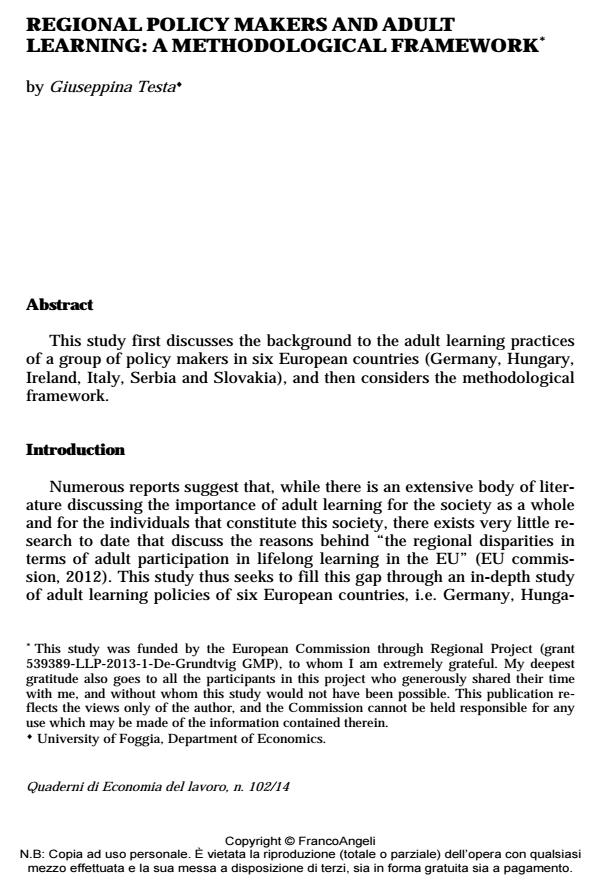Regional policy makers and adult learning: a methodological framework
Journal title QUADERNI DI ECONOMIA DEL LAVORO
Author/s Giuseppina Testa
Publishing Year 2015 Issue 2014/102
Language Italian Pages 12 P. 43-54 File size 68 KB
DOI 10.3280/QUA2014-102004
DOI is like a bar code for intellectual property: to have more infomation
click here
Below, you can see the article first page
If you want to buy this article in PDF format, you can do it, following the instructions to buy download credits

FrancoAngeli is member of Publishers International Linking Association, Inc (PILA), a not-for-profit association which run the CrossRef service enabling links to and from online scholarly content.
This study first discusses the background to the adult learning practices of a group of policy makers in six European countries (Germany, Hungary, Ireland, Italy, Serbia and Slovakia), and then considers the methodological framework.
Giuseppina Testa, Regional policy makers and adult learning: a methodological framework in "QUADERNI DI ECONOMIA DEL LAVORO" 102/2014, pp 43-54, DOI: 10.3280/QUA2014-102004